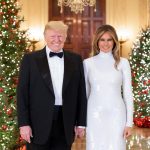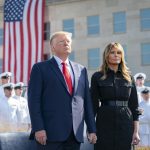President Trump has taken a bold stand on the ongoing TikTok drama, announcing plans late Monday to delay a ban on the wildly popular video-sharing app while he hammers out a deal that allows TikTok to maintain a presence in the United States. Despite an earlier bipartisan law backed by the Supreme Court due to national security concerns—mandating the app either cease operations or sell its American subsidiary—Trump is determined to keep TikTok alive for its legion of fans.
As someone who’s familiar with the inner workings of TikTok, having utilized it to energize supporters during his presidential campaigns, Trump recognizes the app’s significance for over 170 million American users. With his characteristic flair, he suggested that he might be able to strike a deal where the U.S. takes a substantial cut of TikTok, sporting a sense of humor about China making telephones and other products with nary a complaint.
Trump delays ban on TikTok while working on a dealhttps://t.co/Mzj0Z64yX9 pic.twitter.com/3rbnsbRrHR
— The Washington Times (@WashTimes) January 21, 2025
However, Trump’s endeavor is not without its hurdles. The existing law stipulates that any delay needs to be predicated on “significant progress” toward the sale of TikTok, and current owners have hinted at a firm refusal to budge in the face of a forced sale. Prior to Trump’s announcement, TikTok users faced an uphill battle as they found the app inaccessible, thanks to Apple and Google towing the line set by the administration of former President Biden. In a timely display of “law and order,” those tech giants made sure TikTok and its affiliates would be disappearing from their app stores come January 2025.
Undeterred by the challenges ahead, Trump has publicly urged the tech giants to keep TikTok active, envisioning a scenario where the United States could claim a piece of the TikTok pie. Boasting of the app’s potential worth reaching into the hundreds of billions—if not trillions—of dollars with the right government backing, one might argue that the former president is cooking up a plan that’s equal parts business-savvy and nostalgic.
Among the chorus of voices supporting Trump’s revival plan is Kentucky’s own Sen. Rand Paul, who has indicated he might introduce legislation aimed at repealing the TikTok ban altogether. In this spirit, Paul argues that the justification framed as a battle against China is merely a ruse for a government that wants to exert control over its citizens. His sentiment speaks to a broader concern about the implications of a government that can silence platforms it deems undesirable, a precedent that could pose a threat to free expression.
As Trump’s executive order thickens the plot surrounding TikTok, it remains to be seen whether he can forge a deal that will allow the app to thrive in America. In a landscape where technology, government, and user engagement collide, the fate of TikTok has become a proxy battle for broader cultural and political struggles, showcasing the delicate balance between national security and the ever-often-fleeting freedoms of the digital age.




